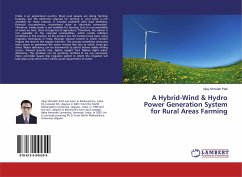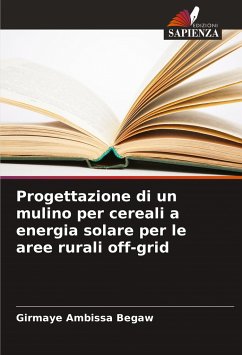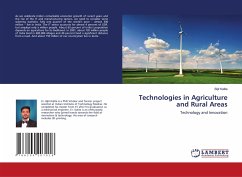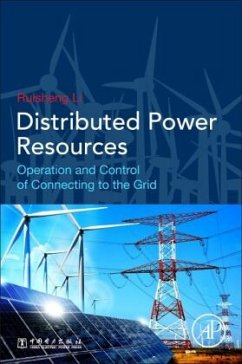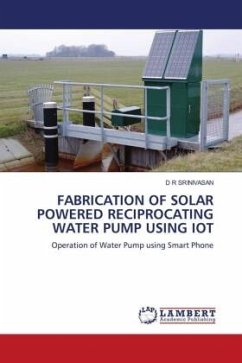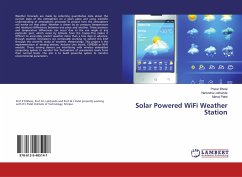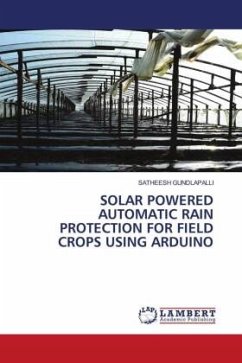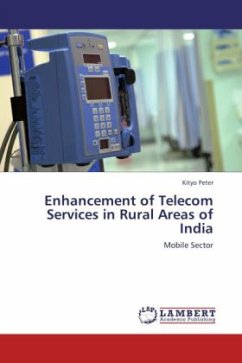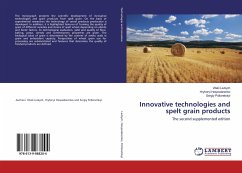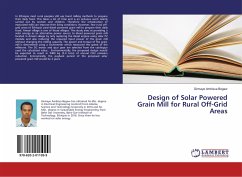
Design of Solar Powered Grain Mill for Rural Off-Grid Areas
Versandkostenfrei!
Versandfertig in 6-10 Tagen
19,99 €
inkl. MwSt.

PAYBACK Punkte
10 °P sammeln!
In Ethiopia most rural peoples still use hand milling methods to prepare their daily food. This takes a lot of time and is an arduous work mainly carried out by women and children. Therefore the introduction of motorized mills can improve their living conditions. However, few rural off-grid areas of Ethiopia used diesel powered grain mill to prepare their daily food; Amasri village is one of those villages. This study aims at providing a solar energy as an alternative power source to diesel powered grain mill located in Amasri village by only replacing the diesel engine using solar PV module a...
In Ethiopia most rural peoples still use hand milling methods to prepare their daily food. This takes a lot of time and is an arduous work mainly carried out by women and children. Therefore the introduction of motorized mills can improve their living conditions. However, few rural off-grid areas of Ethiopia used diesel powered grain mill to prepare their daily food; Amasri village is one of those villages. This study aims at providing a solar energy as an alternative power source to diesel powered grain mill located in Amasri village by only replacing the diesel engine using solar PV module and also reducing the required input power of the grain mill without changing the milling capacity. The power and torque of the grain mill is determined using a tachometer which measured the speed of the millstone. The DC motor and spur gear are selected from the catalogue used the calculated value... Environmentally, the proposed design would be expected to result in 5400 kg (5.4 tons) of annual CO2 emission reduction. Economically, the payback period of the proposed solar powered grain mill would be 2 years.



